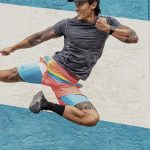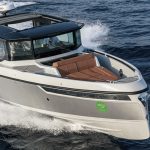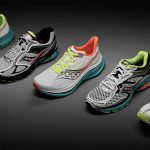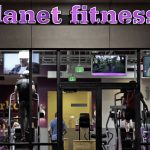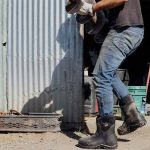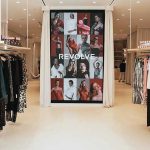The reputation of Lexan polycarbonate water bottles received another blow last week after yoga retailer Lululemon joined Mountain Equipment Co-op in pulling water bottles containing bisphenol-A (BPA) from their shelves.
Vancouver's Mountain Equipment Co-op (MEC) created a firestorm on December 7 after pulling from its shelves most products containing BPA – used in the production of polycarbonate plastics – due to studies that have linked BPA to infertility and cancer. Although best known for hard-plastic, see-through water bottles, the material is also used for baby bottles, dental sealants and the lining of most food & beverage containers.
MEC's move was partly driven by the decision by Health Canada, the countrys national health agency, to conduct an assessment of BPA. The agency intends to release a report on its safety next spring that could recommend that manufacturers phase out the use of the chemical.
Environmental groups have long expressed concerns about the potential health risks posed by the BPA chemical, and recent studies have heightened them. In January 2007, Yale researchers found that when BPA was administered to pregnant mice, it altered a gene responsible for normal uterine development. The study theorized that exposure to the chemical could lead to infertility in people.
MEC says it decided to pull the bottles not only because of the government review, but also due to growing consumer concerns from its members. “We felt it was a prudent measure to take at this time, given the regulatory uncertainty on the one hand and the increasing concerns were hearing from customers about BPA,” says MEC's spokesman Tim Southam. “They were saying, How can you in good conscious, as a responsible retailer, continue to sell BPA given the potential health risks?”
The bad press around polycarbonate water bottles comes as the water bottle category has been galvanized by a push to reduce the use of disposable water bottles. The biggest publicity came after Nalgene teamed with Brita for the Filter For Good campaign. But it also comes as plastic bottle makers are exploring new materials not using BPA.
THE REACTION FROM U.S. RETAILERS
In the U.S., Patagonia was actually the first retailer to pull polycarbonate water bottles from its stores in December 2005. But so far, other retailers continue to sell the water bottles partly because many consumers still prefer the clear and fairly indestructible properties of a polycarbonate bottle.
REI has no plans to stop selling polycarbonate bottles. Spokeswoman Megan Behrbaum says REI has told its employees about MECs decision so they can offer alternatives if customers express concerns. REI also sells stainless steel and aluminum bottles as well as those made from polyethylene, a softer, nonclear plastic. “We have chosen to continue to sell the bottles, but we encourage our customers to be informed,” she says.
REI is also working on coming up with educational material for both its stores and its website to provide relative information around BPA and water bottle safety. Meanwhile, the retailer will continue to monitor the situation and look to the guidance of scientific and regulatory authorities that have so far been approving the safety of polycarbonate bottles. “There's lots opinions on both sides,” says Behrbaum. “If we see a significant body of evidence, we'll definitely look at taking action.”
At Rock/Creek, Mark McKnight, marketing manager, says Klean Kanteen was brought into the stores when it heard from its floor staff that customers were looking for alternatives to plastic bottles. But the Tennessee-based retailer has no plans to pull polycarbonate bottles.
“We're just kind of watching it at this point,” says McKnight. “My understanding is that the signs are still inconclusive. If it were pretty clearly proven, we'd pull them.”
At Backcountry.com, Christian Castellani, merchandise division manager of accessories, says, “Basically the way that we are handling this is by offering the customer the choice. Some people are still very tied to the Nalgene Lexan plastic bottle. We have brought in brands like SIGG and Klean Kanteen and they have really exploded since this discovery. It really hasnt slowed down the sales of the plastic bottles but I think as the public becomes more educated, we should see a drop off in sales. I imagine that the companies that are using the plastic in their water bottles will either start to treat them with a coating on the inside or just move away completely.”
THE REACTION FROM BOTTLE MAKERS
Bottle-makers and the plastics industry vigorously defended the safety of their products.
While Nalgene says it continues to sell a wide range of Nalgene products made with different materials, it also offered strong defense for its polycarbonate products. Nalgene noted that agencies worldwide and researchers – including The Environmental Protection Agency, The Food and Drug Administration in the U.S., as well as similar agencies overseas have studied the safety of BPA and polycarbonate since it was introduced approximately 50 years and continue to find that that food and beverage containers manufactured from polycarbonate do not pose a health risk to humans.
“Rarely has a chemical been the subject of such intense scientific testing and scrutiny, and still important agencies across the globe agree that there is no danger posed to humans from polycarbonate bottles”, says Tom Cummins PhD, director of new product research and development, Nalgene and Nunc Brand Products. “Well continue to work closely with our polycarbonate suppliers and monitor research publications and regulatory developments worldwide to ensure the safety of our manufactured products.”
But some bottle vendors have already been decreasing their exposure to polycarbonate materials.
CamelBak is switching to a BPA-free bottles in Spring 2008. It has partnered with Eastman Chemical Co. to come out with CamelBak Better Bottle product line using new Eastman Tritan copolyester. The bottle with the same properties customers have come to expect from polycarbonate – vibrant color, clarity, durability, dishwasher-safe, and with no residual taste – but is BPA free.
“Customers asked us for a BPA-free alternative to polycarbonate, and that was reason enough for us to move our entire line of Better Bottles,” says Shannon Stearns, marketing director at Camelback. “We will first launch the CamelBak Better Bottle with Classic Cap in February 2008, and will transition our Better Bottle with Bite Valve to Tritan in Spring 2008. This will mean that all CamelBak bottles will be free of BPA and phthalates-including our new Performance sport bottle and Podium bike bottle.”
CamelBak is still assuring customers that its existing polycarbonate bottles have been proven safe by many authorities, but is moving to a BPA-free line because customers asked for it.
“Were unsure how consumer reaction [growing concerns around] BPA will impact the bottle market as a whole, but we do know consumers want choice,” adds Stearns. “Were proud to be among the first to offer that choice in a clear, durable, dishwasher safe material that is BPA- and phthalate-free.”
GSI Outdoors is also working with Eastman Chemical on a BPA-free bottle, and aims to eliminate BPA across all its product lines by 2009.
Mike Glavin, GSI's director of sales and marketing, says health concerns have increased and it might be hard to erase all of them even if polycarbonate proves to be completely safe.
“It's no longer disputable whether BPA is leaching from polycarbonate bottles,” says Glavin. “It's now a question of how much concentration is harmful for humans.”
But regardless of whether BPA turns out to be completely safe for humans, he says better materials are coming to market to replace polycarbonate. Although concerns around BPA have been around for a few years, substitutes couldn't match the durability or clarity of polycarbonate until now. “It seems that the new technologies are going to be available prior to any conclusive health information so our position has been to move forward with alternative materials, just like we do [for] a variety of reasons, whether it's stronger or lighter, etc.”
One big advancement with Eastman Tritan copolyester is its improved dishwasher durability.
Continual exposure to high heat and aggressive cleaning detergents can be used without crazing, cracking or hazing the bottle.
Another more subtle difference, according to Glavin, is that the sound from a Eastman Tritan bottle is more of a “thud” than the higher pitch “ping” coming from a polycarbonate bottle. Although Eastman Tritan may be “a little bit squishier” than a polycarbonate bottle, he doesn't expect consumers to notice any difference between the bottles.
Meanwhile, non-plastic bottle makers are also clearly benefiting.
“Our sales are fantastic,” says Steve Wasik. president, SIGG USA. When SIGG first arrived in the market in 2006, Wasik says the outdoor market looked to the brand as a premium alternative to polycarbonate bottles “which had become somewhat of a commodity.” The current year was helped by a rise in eco-consciousness around excessive plastic.
“While the majority of the negative press was aimed at PET, many Americans are just now learning that all plastic bottles are made from petroleum,” says Wasik.
Wasik says 2008 could to be shaping up as “the year of BPA” in the water bottle market. Continued tests show that Sigg bottles do not leach any harmful chemicals, he says. And although polycarbonate bottles may prove to be safe, it will be tough to erase growing consumer concerns.
“Perception is reality and consumers are saying it's better to be safe than sorry,” says Wasik.
Michelle Kalberer, co-owner of Klean Kanteen also says her company has been helped by anti-plastic fervor over the last year. She founded Klean Kanteen with her brother largely due to environmental issues around throwaway plastic bottles.
“Even with recycling efforts, the landfills are getting so full of these one-time use bottles,” says Kalberer.
But she also noted a “rush in Canadian orders” with the news coming from MEC as many Canadian retailers are looking for alternatives to polycarbonate bottles. She noted that it's been a “slow road” for both Klean Kanteen and Sigg as consumers had grown accustomed to drinking from clear, hard plastic bottles. But concerns over plastic's impact on the environment have clearly helped the non-plastic categories, and any growing awareness of possible health risks around BPA will only feed that momentum.
“Once it kinds of gets in people's mindset, it takes a while for them to think differently,” says Kalberer.


